We Shall Not Be Moved
October 6 -7, 2017
Apollo Digital Stage Sponsored By

"...LOVE IS THE ONLY WORD SWEETER THAN BLACK"
2017: John Blue, a 16-year-old trans-boy, sings these words, spoken to him by the OGs, spirits who inhabit the condemned house where he, his sister and three brothers have taken refuge after a series of tragic incidents. The house, 6221 Osage Avenue in West Philadelphia, sits on the location that once served as the headquarters of John Africa's MOVE organization; a location at the center of a firebombing 32 years earlier that killed six adults and five children and destroyed dozens of nearby homes, leaving an indelible scar on the city.
A multidisciplinary chamber opera told in three acts, We Shall Not Be Moved is the story of five teens from North Philadelphia who self-identify as a family and who, seeking to find their way out of dire present-day situations, encounter voices from the past with much to teach them about the struggle for justice, liberty and freedom.
Learn More
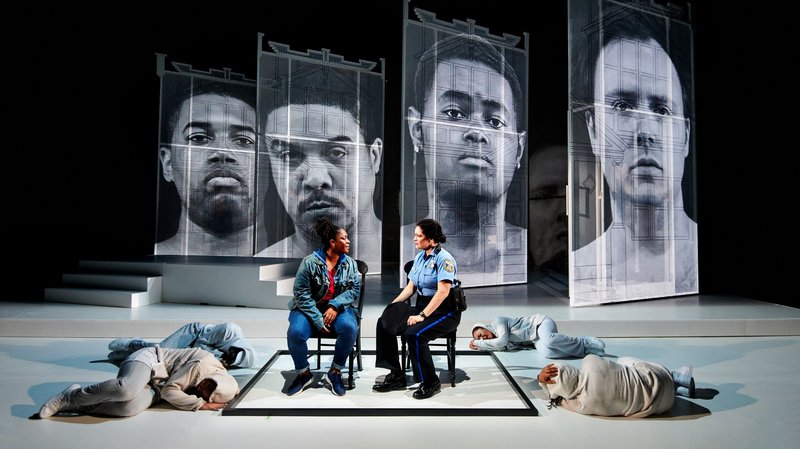
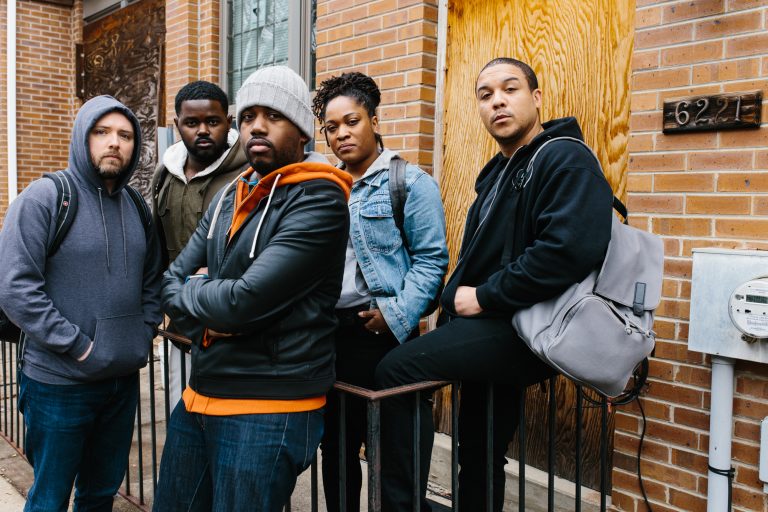
We Shall Not Be Moved is co-commissioned and co-produced by Opera Philadelphia, the Apollo Theater, and Hackney Empire; it is the second production presented as part of the collaboration. The first production, Charlie Parker’s YARDBIRD, premiered in 2015 at the Perelman Theater in Philadelphia before opening at the Apollo in 2016 and moving on to the Hackney that same year.
We Shall Not Be Moved premiered at the Wilma Theater in Philadelphia on September 16, 2017. Following its run at the Apollo on October 6 & 7, it will move to the Hackney, for a week-long run.
The Creative Team
Marc Bamuthi Joseph is an acclaimed Haitian-American librettist whose bold poetically-driven work investigates social issues and cultural identity.
Bill T. Jones is a TONY award-winning director and choreographer (Fela!, Spring Awakening).
Daniel Bernard Roumain is a Harlem based composer whose music blends genres into a vital, experiential sonic form.
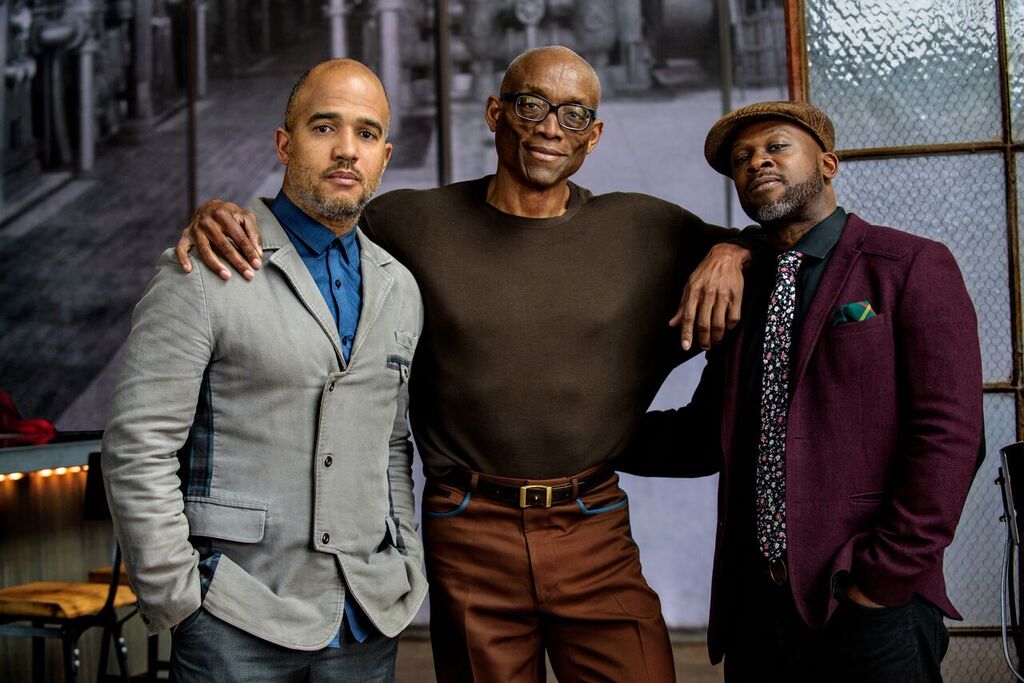
The Inspiration
We Shall Not be Moved was inspired by the writings of Philadelphia high school students who participated in Opera Philadelphia’s Hip H’opera program, a collaborative project in partnership with Art Sanctuary, which engaged students in classical music, poetry, hip hop and other art forms.
Cast and Characters

UN/SUNG
Lauren Whitehead
15 years old, the "Harriet Tubman" of this railroad, she expresses primarily through spoken word.

GLENDA
Kristen Chávez
A Latina police officer from North Philadelphia, working in West Philadelphia.

JOHN LITTLE
Daniel Shirley
17 years old. Named for the label that Malcolm X refused.

JOHN MACK
Adam Richardson
18 years old. The "preacher".

JOHN HENRY
Aubrey Allicock
17 year old. Would rather lift you physically than lift his voice. A B-Boy.

THE OG's
(From Left to Right) Caci Cole Pritchette, Duane Lee Holland Jr., Tendayi Kuumba, and Micheal Bishop.
OGs are spirits and thus can both move fiercely and sing like angels. They hold the memories of what happened at 6221 Osage Ave. and they remember more than one historical time or place. Their job is to teach those histories.
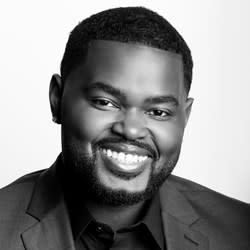
JOHN BLUE
John Holiday
16 years old. A trans-boy who expresses in falsetto and upper register.
“America, What’s so wrong you got laws against THIS body?” - UN/SUNG
This is My Body...
The teens in We Shall Not Be Moved introduce themselves according to how they each view their own body. "This is my body..." they each state, as the labels assigned to their bodies define the circumstances they find themselves in.
John Blue describes his identity as a trans-boy: "This is my body. Transboy. Born girl. I'm becoming a man. Gender boxes are cages." His introduction highlights what role society assumes for gendered bodies and how he is both confined to and existing outside of society's expectations for men and women. Tiq Milan, a writer and activist, echoes Blue's sentiments as he shares how his transgender experience has informed his views on masculinity, race, and the gender binary.
Un/Sung pinpoints the intersection of her race, gender, and class: "This is my body. Colored. Girl. I’m exposed to touch. Or trash. I’m from North Philadelphia. Of the wrong class. Of the wrong caste." Her introduction reveals how society devalues the multiple identities her body inhabits. Girlhood Interrupted: The Erasure of Black Girls Childhood provides evidence revealing the frequent mislabeling of Black girls by adults.
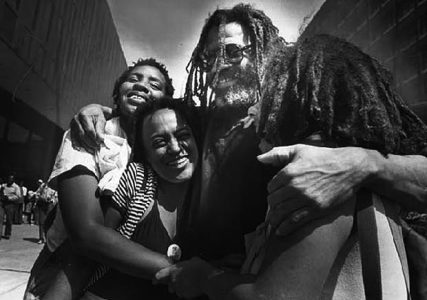
MOVE
John Africa (born Vincent Leaphart) founded MOVE in 1972. He and his group advocated for a radical form of green politics by composting, using wooden stoves, having natural births, and creating animal shelters. MOVE members lived in opposition to science, medicine, and technology and only had a car so they could easily travel to members who had been imprisoned. As John Africa had done, members of MOVE changed their surnames to Africa, which they regarded as the mother continent.
Timeline to the Bombing of MOVE
1972: John Africa founds MOVE.
1978: Philadelphia Police Officer James Ramp dies when police attempt to evict MOVE members from their Poweton Village home. Twelve MOVE members, including Delbert Africa, were accused of murdering Ramp, nine were convicted and are still imprisoned.
1981: MOVE relocates to West Philadelphia, Osage Avenue.
1985: On May 13, 1985, Philadelphia Police Chief George Sambor orders that the MOVE house be bombed. From a State Police helicopter, PPD Lt. Frank Powell proceeds to drop two one-pound bombs. The resulting fire killed 11 MOVE members, including 5 children, and destroyed over 60 homes.
Learn More
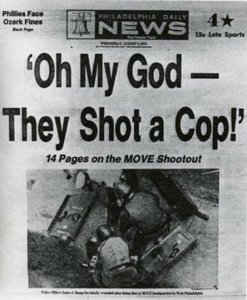
"Let The Fire Burn"
Released in 2013, director Jason Osder's award-winning documentary film, Let the Fire Burn, uses archival news coverage and interviews to tell the story of events leading up to May 13, 1985, the day of the bombing of MOVE's home on Osage Avenue and the proceedings of the special commission that investigated the bombing.
Osage Avenue: 1987 - 2017
In 1987, homes on the 6200 block of Osage Ave were rebuilt in a substandard fashion. Ten years later, the rebuilt homes were condemned. Continued efforts to rebuild and stabilize the area have not been successful.
In 2017, “Songs of Children,” a collective of five students—Ella, Hannah, Ishtar, Nigel, and David—from the Jubilee School, organized to have the City of Philadelphia install a marker remembering MOVE.
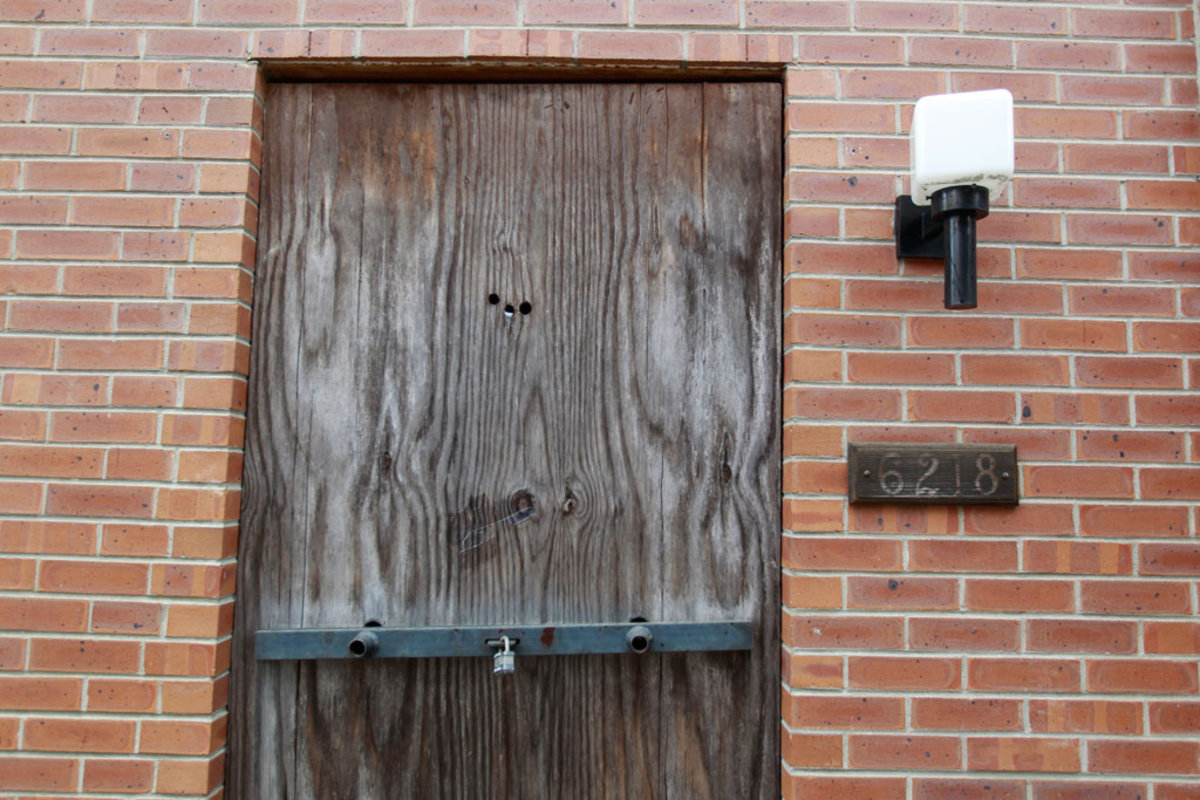
Osage Avenue, row house, 2015. Michael Bryant for The Inquirer
Setting the Stage: Themes
What's at stake is America itself. What do public schools in our largest cities tell us about the future we're making? Who's invited to participate? What to make of the small pockets of people who whisper or clamor for secession?
- WURD
We Shall Not Be Moved grapples with issues effecting youth of color in North Philadelphia and beyond. Educational inequity, transgender discrimination, and the policing of Black communities remain unresolved matters causing many youth to secede from traditional forms of family structures. The opera provides one way of searching for and finding an answer.

Educating America: Race | Class | Inequity
...it’s supposed to be the first week of school / but the city has run out of money / so the doors are locked and the bells ain't ringing / and the gunshots are ringing and my brothers are failing / and the ghosts keep calling.
~Un/Sung
In the opera, Un/Sung shares what happened when she and her brothers arrive at their school building to find the doors locked due to the city's financial crisis.
In March 2013, Philadelphia's Board of Education closed 23 schools. The closures targeted schools that were under-performing and had low attendance rates; closing them would help decrease the District's budget deficit of $135 billion. Districts across the nation participated in massive school closures, all of which tended to affect students of color and in low-income areas. In Philadelphia, 81% of students affected by the school closures were African-American (MSNBC, 2013).
Education inequity is not new or solely effecting Philadelphia school districts. Today, some 60 years after Brown v. Board of Education, more than 50 years since nine Black students integrated Little Rock High School and Mae Mallory, along with other parents, protested conditions in Harlem's public schools, there are schools in the U.S. that remain segregated, underfunded, and poorly resourced. Education by the Numbers shows a breakdown of the States progression and regression towards an equitable education system.

Family
After the school's closing, the five orphaned teens bond over their shared experience and pain. They make a family of themselves, recognizing their marginalization and claiming it as a source of power.
In the 1970's, New York City's drag scene did the same by producing "Houses." Houses, such as "House of LaBeija," held balls, dance battles, runway shows and other social events, and was a home for individuals who self-identified as a family within the LGBTQ community.
MOVE, too, is a self-identified family of individuals who believe and practice the teachings of John Africa. Each member changed their surname to Africa, to show reverence to the continent and identify as a family.
A Message Within
We Shall Not Be Moved joins a list of contemporary operas sharing narratives of our time and expressing themselves in styles representative of the lives portrayed:
In 1983, Anthony Davis, his brother Christopher Davis, and their cousin Thulani Davis wrote and composed the opera X, The Life and Times of Malcolm X. The opera chronicled the life of X including, his childhood, his conversion to Islam, his activism after leaving the Nation, and his assassination. The opera had four sold out audiences at the New York State Theater. Anthony Davis has since composed operas including, Under the Moon and Tania.
In 2013, Micheal Cristofer wrote Champion, An Opera in Jazz, composed by Terrence Blanchard. Champion tells the story of boxer Emile Griffith's struggle to reconcile his sexuality in the hyper-macho boxing world of 1962. The opera premiered at Opera Theatre of Saint Louis and was co-commissioned by the Opera Theatre of Saint Louis and Jazz Saint Louis.
